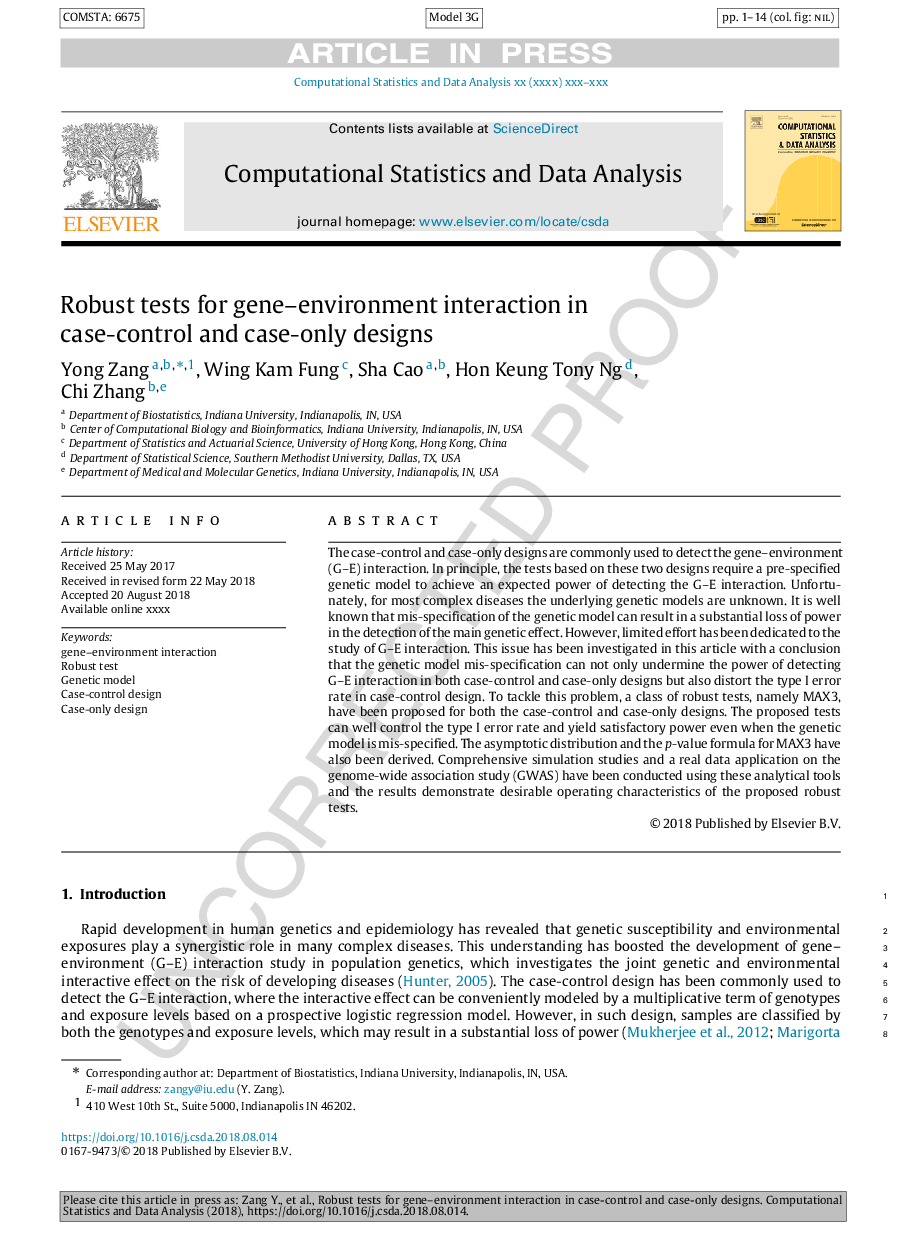| Article ID | Journal | Published Year | Pages | File Type |
|---|---|---|---|---|
| 10139303 | Computational Statistics & Data Analysis | 2019 | 14 Pages |
Abstract
The case-control and case-only designs are commonly used to detect the gene-environment (G-E) interaction. In principle, the tests based on these two designs require a pre-specified genetic model to achieve an expected power of detecting the G-E interaction. Unfortunately, for most complex diseases the underlying genetic models are unknown. It is well known that mis-specification of the genetic model can result in a substantial loss of power in the detection of the main genetic effect. However, limited effort has been dedicated to the study of G-E interaction. This issue has been investigated in this article with a conclusion that the genetic model mis-specification can not only undermine the power of detecting G-E interaction in both case-control and case-only designs but also distort the type I error rate in case-control design. To tackle this problem, a class of robust tests, namely MAX3, have been proposed for both the case-control and case-only designs. The proposed tests can well control the type I error rate and yield satisfactory power even when the genetic model is mis-specified. The asymptotic distribution and the p-value formula for MAX3 have also been derived. Comprehensive simulation studies and a real data application on the genome-wide association study (GWAS) have been conducted using these analytical tools and the results demonstrate desirable operating characteristics of the proposed robust tests.
Related Topics
Physical Sciences and Engineering
Computer Science
Computational Theory and Mathematics
Authors
Yong Zang, Wing Kam Fung, Sha Cao, Hon Keung Tony Ng, Chi Zhang,
